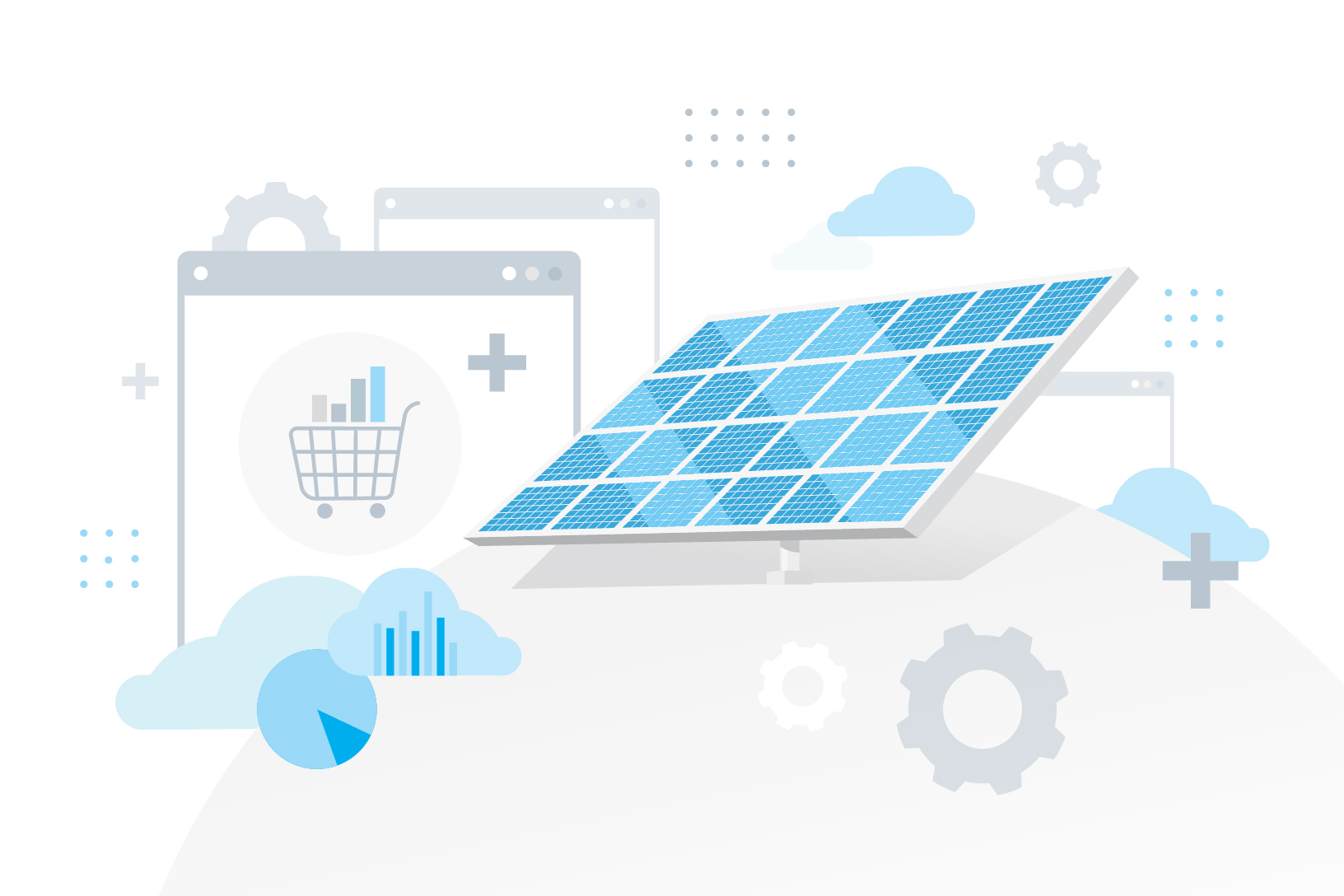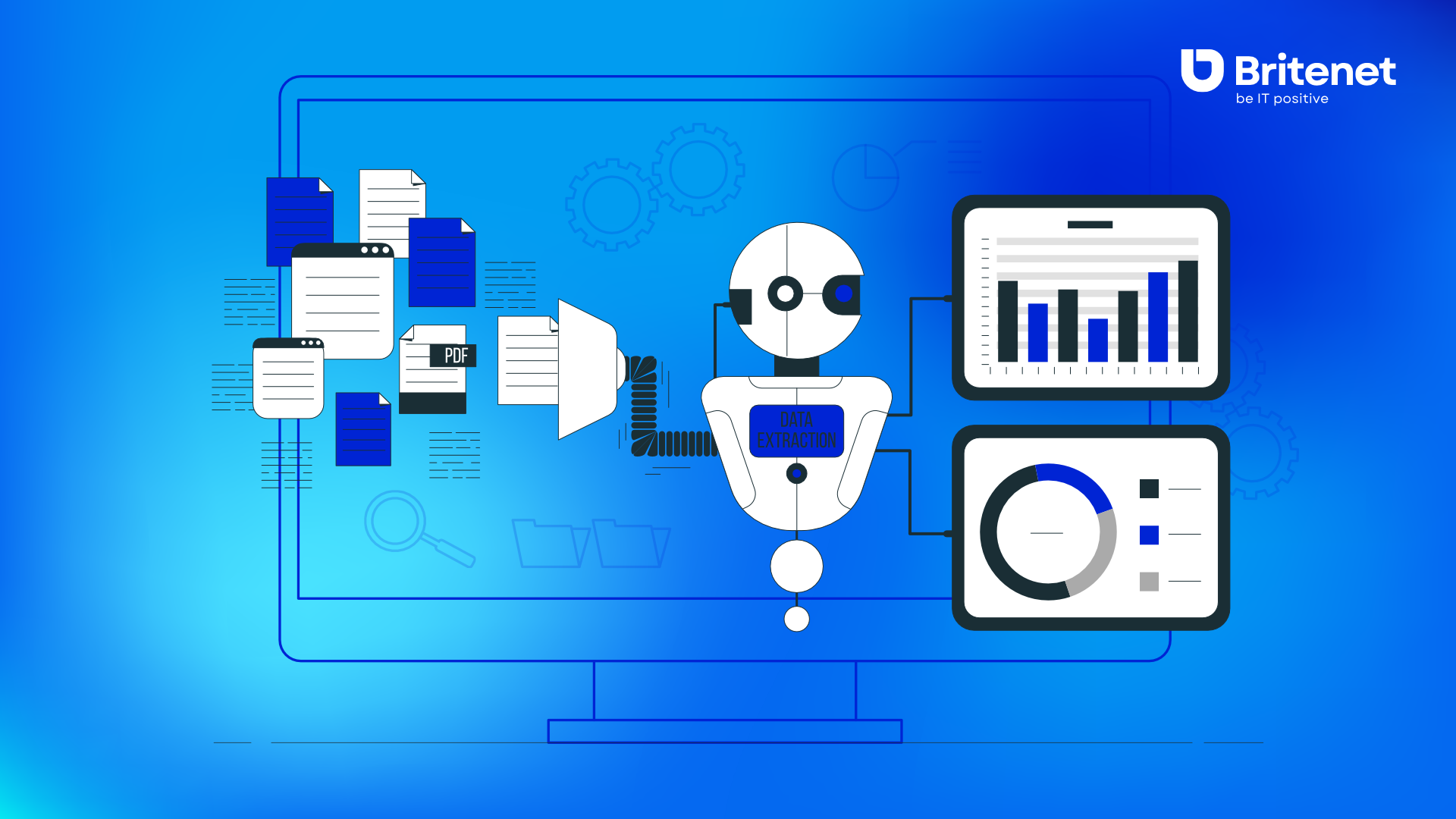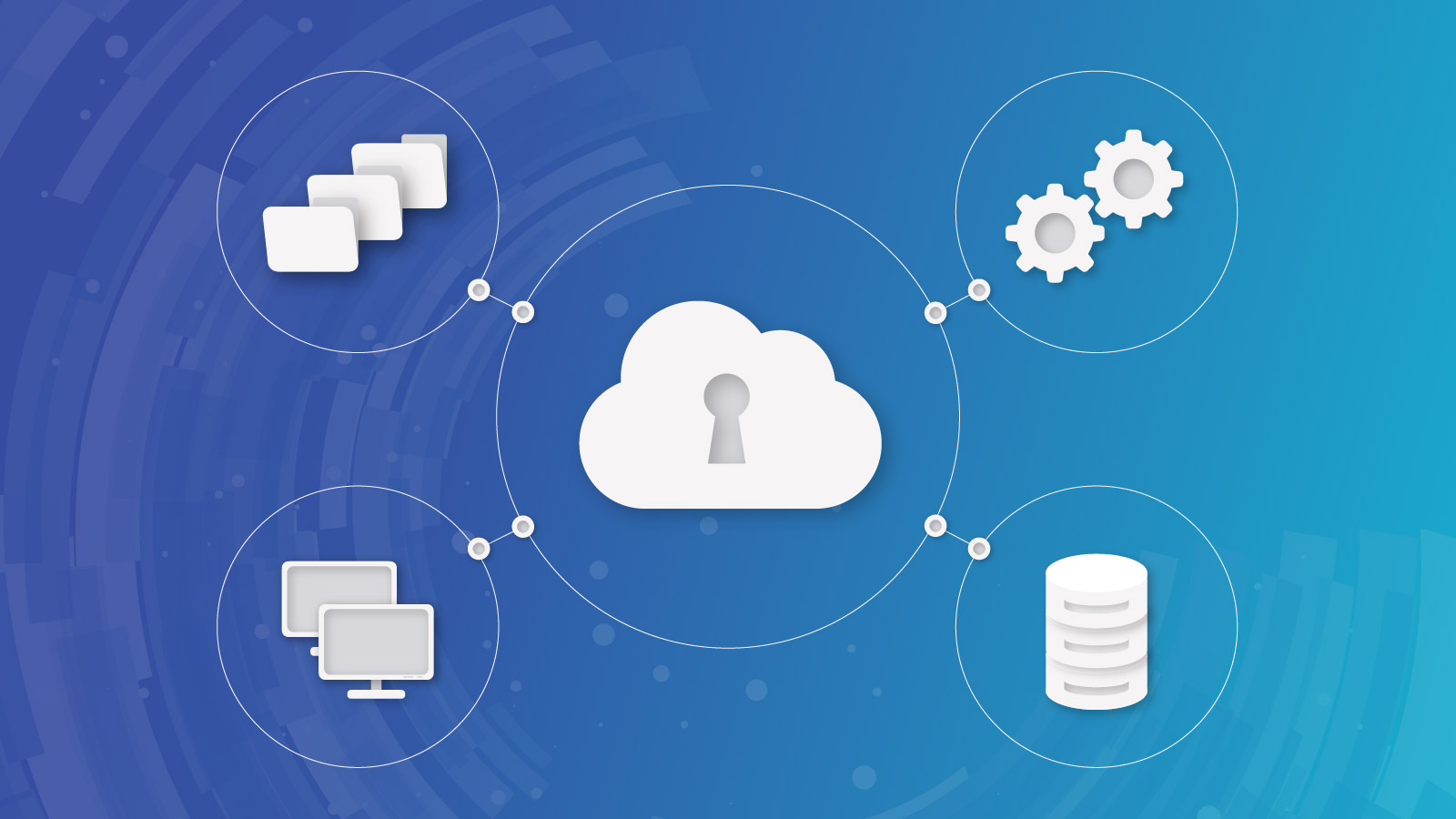It's no secret that photovoltaic panels are a long-term investment. For households, this process is often prolonged by additional paperwork related to credit or leasing. In addition, the very choice of photovoltaic panels can be very complicated for the customer due to the large number of variables and new concepts difficult to assimilate. The above issues make it take customers much longer to decide and finalize the purchase of a photovoltaic installation than they may have assumed at the beginning.
In turn, such an extended decision-making process is a challenge for salespeople working in the industry. This is because it requires full commitment to work with multiple customers at the same time and to constantly keep a hand on the pulse. Is it possible to turn this challenge into a thoughtful, transparent process with structured data? Of course there is! In this article I would like to present a way to do it, viz. Implementing a CRM system.
If you are encountering the term CRM for the first time or have already heard about it somewhere, but are still in doubt about what exactly it means, I encourage you to read the section "What are CRM systems". On the other hand, if you're already familiar with the term CRM, you can safely skip to part two, titled "How CRM can improve sales." "How CRM can improve sales in the photovoltaic industry."
What are CRM systems?
CRM (Customer Relationship Management) is a technology that is intended to build, improve and maintain relationships with potential and existing customers. The functionalities of CRM systems include, among others, tools for acquiring potential customers, optimizing and improving sales processes, as well as issues related to handling complaints.
So we have the definition behind us, but I believe that better than that, the whole essence of CRM will be explained by a few sample functionalities that such a system can offer us. In this article I'm covering the topic of sales in the photovoltaic industry, so let me focus on functionalities that are designed to streamline the process from the moment a business opportunity arises to the signing of a contract. In describing the sample functionalities, I will draw on my own experience in working with Salesforce CRM. So what should we expect or what can we expect?
- Data quality control - by conducting an audit, the vendor can be guided step-by-step through the entire process of collecting the information necessary to prepare an offer. Data quality control provides assurance that at a given stage all the required information will be entered and in the correct format. The data that can be calculated can also be completed automatically. conducting an audit, the vendor can be guided step by step through the entire process of collecting the information necessary for the preparation of an offer. Data quality control provides assurance that at a given stage all the required information will be entered and in the correct format. Data that can be calculated can also be completed automatically.
- Automation of calculations - automation of complex calculations related to total or partial cost and return on investment over the years.
- Generate offers - create personalized documents needed to present to the customer in the form of an offer or offers, from which he will choose the most convenient one for himself.
- Contract generation - create contract documents and store them in the system along with other customer information.
- Reporting - automatic generation of reports that allow you to observe the effects of individual sales activities and draw conclusions, enabling you to make improvements and increase sales efficiency.
CRM is, of course, much more than just those functionalities described above. The variety of available functionalities is due to the fact that the CRM systems themselves available on the market differ significantly from each other. Some of them are systems dedicated to some specific industry, while others offer more universal solutions. The goal of all of them, however, is one - to streamline the process of managing a company's customer relationships, and thus achieve the highest possible level of customer satisfaction. In the rest of this article, I will try to point out the most important improvements that a CRM system can offer in the context of the photovoltaic industry.
How CRM can improve sales in the photovoltaic industry
Create a clear path for the sales process
It's hard to work in a mess, and it's hard to find what you're looking for in a mess. The work of a sales team in the photovoltaic industry is, as I mentioned earlier, quite a challenge to lead many customers at the same time. I have noticed that it becomes even more difficult if we do not have a certain clearly defined path along which we should guide each customer. This path should consist of stages where certain actions are required and specific information to be completed. Naturally, the idea here is not to standardize the sales process for all types of business opportunities, but rather to define certain rules for each case.
A well-thought-out, refined sales path allows you to focus first and foremost on the current stage of working on a potential customer or business opportunity. It determines what actions need to be taken and what data needs to be collected. The simplest example here is the auditing stage, during which it is necessary to prepare a whole set of information on the infrastructure on which the installation will be mounted. In addition, in some cases it may be necessary to include additional photos. By controlling what data and how it will be completed during auditing, we can avoid problems in later stages of the work, where this information will be necessary. The above approach therefore benefits not only the sales team, but also everyone else who will benefit in later stages from the information completed by sales.
An additional benefit that many CRM systems offer their users are notification and reminder features. These make it easier for salespeople to keep their finger on the pulse and keep up with set deadlines. In this way, contact is made at the time expected by the customer, which not only increases the chance of a sale, but also creates an image of the company as a timely and reliable supplier.
Gather data in one place
Let's imagine a situation where, after two phone calls, a client has expressed his interest in our company's services. Over the phone we have already obtained some of the necessary information, but now we arrange a face-to-face meeting for an audit. We sit down at a table eye to eye with our client, fire up the computer and start asking questions. The questions are in one spreadsheet, while the information we have already gathered is in another. In addition, we also have open a catalog of available photovoltaic panels with a price list, our email correspondence and notes written down after a phone conversation. It's easy to imagine that all the open programs and files create unnecessary chaos and increase meeting time. In reality, all of this could be contained on one or two screens! CRM systems give us just such an opportunity, allowing us to store all the information described above and at the same time offering us a complete view of the customer.
The customer view should include all the information we have gathered about the customer so far - and I'm not just talking about his personal information! It is important for the sales team to complete all the information about the customer's preferences and needs, as well as his concerns and doubts about the investment. I probably don't need to explain how useful such knowledge can be during a meeting! In addition to all the information we manage to gather during the sales process, the customer's view should also include the full history of his communication with the company. This allows those working on a business opportunity to quickly refer to a specific message. In addition, this is a recipe for maintaining continuity of communication with the customer in the absence of the person who is his guardian on a daily basis.
The biggest benefit of the full customer view is, of course, for the sales team. This avoids awkwardly switching through a stack of files and pages with various information about the customer when talking to them. In addition to salespeople, all the collected information can also benefit the teams responsible for the execution of the installation, as well as service, marketing and management. I will talk more about the benefits of the latter in the next section.
Analyze, don't guess
As I mentioned before, the data collected in the CRM system downstream can be used by all those who are authorized to do so, including the company's management itself. This is because in CRM systems we collect not only information about customers, but also details about business opportunities. Among other things, we determine the potential value of the order, the degree of progress of the talks, and, in the case of an unsuccessful opportunity, also the reason why the customer dropped out.
Historical data on business opportunities won or lost can help direct the activities of individual teams to minimize costs and maximize the profits of the organization's operations. In addition, they make it possible to analyze the effectiveness of past practices and make improvements where problems are clearly perceived. An example of this is to analyze the stages at which the sales process stops or significantly slows down. This is because it may turn out that most opportunities are lost at the quotation stage, because the offer is sent too late or is mismatched to the needs or capabilities of customers.
A properly selected CRM system should provide us with tools that enable us to report and analyze data, and thus draw valuable conclusions for the company. This is how we get rid of any steps from our processes that are based on book knowledge or hunches, replacing them instead with actions based on real data from our business.
Save time on calculations
Installation, electrics, inverter and, most importantly, photovoltaic panels - these are just some of the choices any customer deciding to invest in a photovoltaic installation must make. From concepts that are difficult to assimilate and enigmatic calculations can make your head spin, so it would be ideal to ask for help from a specialist - an installation company that will dispel all doubts and present possible scenarios for costs and returns on investment. Pricing an installation, on the other hand, is a very complex matter, and, after all, in business, time is often of the essence. This is where the dilemma can arise - should we provide a quote quickly, but with fewer details and options to choose from, or spend more time preparing it, risking that the customer will make a decision before we can complete all the options that are favorable to him?
The CRM system has the opportunity to deprive us of such dilemmas, satisfying both of these needs. The automation of cost and return calculations and the selection of plant components based on the relationship between them is a solution that allows us to generate many differentiated offers in a short period of time. In this way, we can resolve any dilemmas of customers, presenting them with a range of options with tailored calculations of costs and returns on investment. In addition, by storing product information in the system, we can include in our offer detailed information on, for example, the advantages and disadvantages of each solution, gaining the image of an expert in the eyes of the customer.
A definite advantage of automating or partially automating the bid generation process is the time saved by salespeople. Since those who work with customers should be focused primarily on nurturing relationships with them, it is worth taking care to minimize the time they have to spend on other tasks.
Take care of your customers to get more customers
For a service company, nothing is a better advertisement than a job well done. Based on Britenet's experience working with companies in the photovoltaic industry, I know that this is no different either. People looking for a service provider want to be sure that the job will be done reliably and on time, so they are more likely to use companies recommended to them by friends or family.
It is for this reason that it is worthwhile to nurture our relationship with customers not only up to the point of installation, but also afterwards. The task is not the easiest one, of course, as the number of customers grows over time, and sales should be focused primarily on talking to new customers. Here again, it is worth reaching for the functionalities offered by CRM systems.
Among the most important elements to be mentioned in terms of customer retention is, of course, service. The most important aspect here is the quality and speed of handling a given request. CRM systems help ensure that this process is quick and efficient. It is important that the employee properly assigned to the request is immediately notified of it. This will speed up the time of the first reaction on the part of the company, and thus instill in the customer the feeling that we care about him and his interests.
As in the case of sales, in terms of service, it is also worth preparing a path that will define the actions to be taken and the information to be collected at certain stages of it. This way we get the assurance that every customer will be served in the shortest possible time and in the same or similar way that meets the company's standards. It also ensures the satisfaction of existing customers and the chance for more referrals in the future.
Summary
The work of a sales team in the photovoltaic industry involves a number of challenges directly related to the nature of the services it provides. Among the problems faced by sales on a daily basis are a long decision-making process, a lot of technical data that must be compiled in the course of conversations with customers, and the complicated and time-consuming preparation of offers. These and many other problems can be at least partially solved by using a CRM for this purpose. Thanks to such systems, we have the ability to store all relevant information in one place using, among other things, a full view of the customer. In addition, they allow us to shape and constantly improve sales processes, thus simplifying the work of salespeople. The data collected during this process is an indispensable source of knowledge for management, which, based on it, has the opportunity to analyze current strategies, seeing their strengths and weaknesses. In addition to sales itself, CRM systems also help to ensure the satisfaction of existing customers, which in turn can translate into an increase in the number of referrals of our services among their friends.
Although all CRM systems are based on the same premise, they can differ significantly in the available functionalities. For this reason, before making such an important decision, it is advisable to first familiarize yourself with the various offerings available on the market and choose the option that best fits your needs. I also encourage you to read materials that can help you make a decision and prepare for a CRM implementation.



